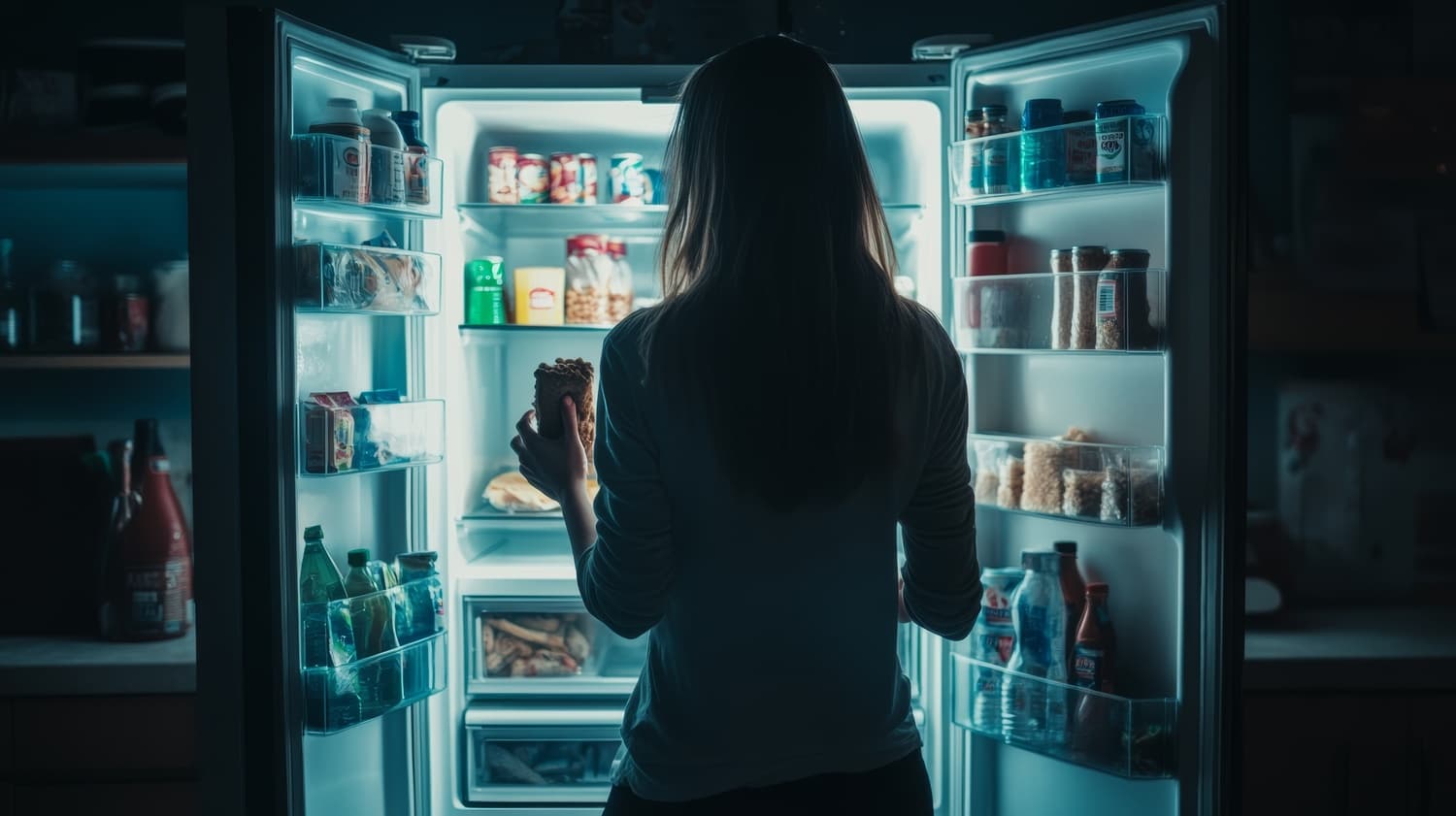
Is Eating Late at Night Always Bad?
No — it depends on the context. Eating late at night isn't inherently harmful, but it can disrupt weight loss, digestion, and metabolic function depending on what you eat, how much, and why.
It’s less about the clock and more about the pattern. The problem isn’t nighttime eating — it’s mindless, stress-driven, or unbalanced meals at night.
What Are the Common Concerns About Late-Night Eating?
Potential drawbacks include:
- Blood sugar spikes from high-carb, low-protein meals
- Disrupted sleep if digestion interferes with rest
- Weight gain if it adds unneeded extra calories
- Poor digestion or reflux when lying down shortly after eating
But again — these outcomes are tied to what and how you eat late at night, not just the timing itself.
Is It Worse to Eat Late If You're Trying to Lose Weight?
Possibly. Late-night eating often involves snacking after dinner, emotional eating, or compensating for skipped meals earlier in the day. This can easily push you into a calorie surplus — especially if your metabolism is winding down for the night.
However, if your overall intake and blood sugar remain balanced, late meals aren’t inherently fattening.
What About Circadian Rhythms?
Your body has a natural internal clock that regulates digestion, hormone release, and metabolism. Eating at odd hours — especially inconsistent ones — can throw off these rhythms and impair glucose control.
Ideally, try to finish eating 2–3 hours before bed. But for shift workers or late diners, consistency is more important than rigid meal times.
Can Eating Late Be Helpful for Some People?
Yes. For certain individuals, especially those who:
- Work out in the evening
- Have blood sugar instability
- Struggle with insomnia related to low blood sugar
...a light evening snack with protein and healthy fats can improve sleep and recovery.
What Types of Foods Are Best Late at Night?
If you’re eating after dinner or close to bedtime, choose options that are:
- Light and easy to digest: Avoid heavy or greasy meals
- Low in added sugar: Prevents energy spikes and crashes
- Protein-rich: Helps satiety and stabilizes blood sugar
- Balanced with fat or fiber: Supports fullness without overdoing it
Examples:
- Greek yogurt with cinnamon
- Hard-boiled egg and berries
- Almond butter on a rice cake
- A small protein shake
What Should You Avoid Eating Late?
- Refined carbs and sweets: Ice cream, cookies, cereal
- Large meals: Pizza, takeout, or heavy leftovers
- Alcohol: Disrupts sleep and digestion
- Spicy or acidic foods: May trigger heartburn
These foods can lead to digestive issues and poor sleep quality — even if they fit your calorie goal.
How Can You Break the Habit of Mindless Late-Night Eating?
Start by identifying the root:
- Are you skipping meals earlier? Eat more consistently during the day
- Are you bored or stressed? Try replacing snacking with a wind-down ritual
- Is it a sleep delay tactic? Create a bedtime routine to shift focus
Awareness comes before change. You’re not just trying to remove a habit — you’re trying to meet the need in a better way.
Final Thoughts
Eating late at night isn’t automatically bad — but how you approach it makes all the difference. If nighttime meals are balanced, intentional, and don’t interfere with sleep or goals, they can fit into a healthy routine.
But if you’re using food to self-soothe, stay awake, or make up for unmet needs earlier in the day, it’s worth exploring that pattern. With awareness and structure, you can eat in a way that supports your body — at any hour.
Disclaimer: The information provided on this website, including blog posts, is for general educational and informational purposes only and is not intended as medical advice. As a board-certified physician, I aim to share insights based on clinical experience and current medical knowledge. However, this content should not be used as a substitute for individualized medical care, diagnosis, or treatment. Always consult your own healthcare provider before making any changes to your health, medications, or lifestyle. marmean and its affiliates disclaim any liability for loss, injury, or damage resulting from reliance on the information presented here.